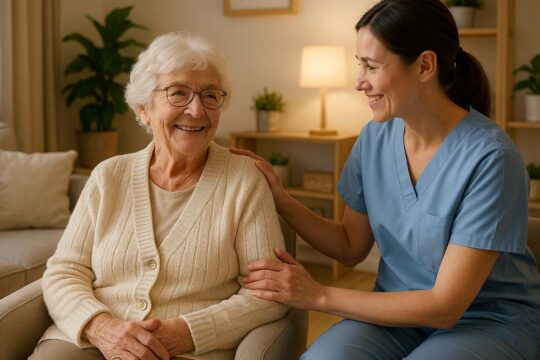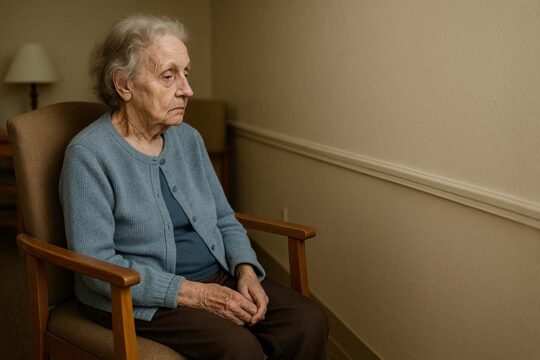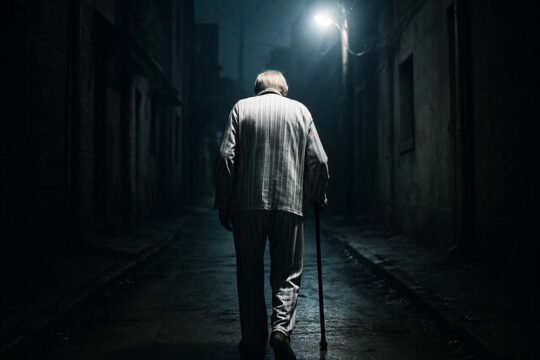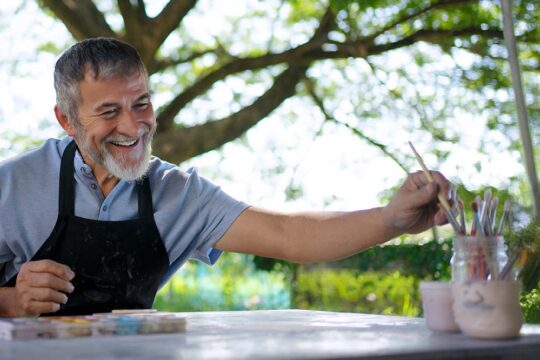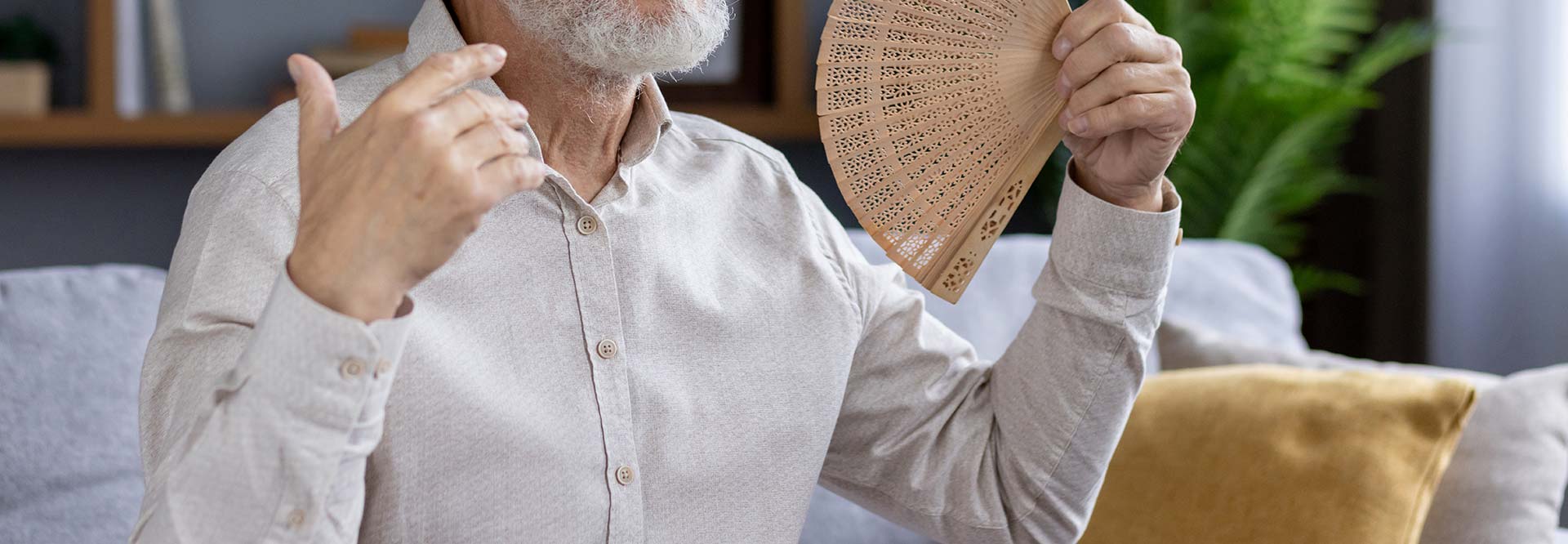
Answers for Elderly Person Feeling Hot All the Time
Reasons for An Elderly Person Feeling Hot All the Time
When an elderly person gets overheated they may feel excessively hot due to medications, thyroid issues, dehydration, decreased blood circulation, or hormonal changes. Proper medical assessment is essential, especially if these symptoms are new or worsening, to determine appropriate management and care.
What causes elderly to feel hot?
An elderly person feeling hot or experiencing sudden changes in body temperature can be caused by these factors:
- Medications: Many common medications taken by elderly people, including blood pressure medications, diuretics, and medications for psychiatric disorders, can affect the body’s ability to regulate temperature.
- Thyroid Issues: Disorders of the thyroid gland, like hyperthyroidism, can cause increased metabolism leading to excessive body heat.
- Dehydration: Older adults are more susceptible to dehydration, which affects the body’s ability to sweat and maintain a normal temperature.
- Decreased Blood Circulation: As people age, changes in circulation can affect the body’s ability to regulate temperature. Poor circulation can make it hard to keep warm.
- Hormonal Changes: Similar to menopause, hormonal changes in elderly women can cause hot flashes and altered heat sensitivity.
- Health Conditions: Certain health conditions like diabetes and heart disease can impair heat regulation.
- Infection: In older adults, even mild infections can disrupt normal temperature regulation, leading to feelings of being hot without a fever.
- Autonomic Nervous System Changes: The autonomic nervous system controls body temperature, and its efficiency may decline with age.
Understanding the specific cause of an elderly person feeling hot all the time requires medical evaluation, especially if this symptom is new or has suddenly become more pronounced.
Symptoms of overheating in the elderly
Overheating in the elderly can manifest in serious symptoms, each indicating different levels of heat-related stress. Here’s a breakdown of these symptoms:
- Heat Rash: Often appearing as small red bumps on the skin, heat rash occurs when sweat ducts become blocked and the sweat produced cannot get to the surface of the skin to evaporate. This is a common but mild symptom of overheating.
- Heat Cramps: These are muscle spasms that occur in the legs, arms, or abdomen, associated with strenuous activity in a hot environment. Heat cramps are painful and are believed to be caused by imbalances in the body’s electrolytes.
- Heat Exhaustion: This is a more severe condition that develops after exposure to high temperatures and inadequate or unbalanced replacement of fluids. Symptoms include heavy sweating, weakness, cold, pale and clammy skin, fainting, vomiting, and a fast, weak pulse.
- Heat Syncope: This refers to fainting or dizziness as a result of overheating. It can happen when the body tries to cool itself by expanding the blood vessels so much that blood flow to the brain is reduced.
- Heat Stroke: This is the most serious form of heat injury and is considered a medical emergency. Heat stroke can kill or cause damage to the brain and other internal organs. Symptoms include high body temperature, the absence of sweating, hot red or flushed dry skin, rapid pulse, difficulty breathing, strange behavior, hallucinations, confusion, agitation, disorientation, seizure, and/or coma.
These conditions show the importance of monitoring the elderly during hot weather and ensuring they stay hydrated, cool, and well-ventilated to prevent overheating.
How can underlying medical conditions contribute to increased heat sensitivity in the elderly?
Underlying medical conditions can significantly contribute to increased heat sensitivity in the elderly. Conditions like diabetes, heart disease, and poor circulation can cause impaired thermoregulation and limit the body’s natural ability to regulate temperature. Diabetes can affect peripheral blood flow and sweat production, while heart disease can limit the heart’s ability to pump blood effectively during heat stress.
Many elderly people take medications that can impact their body’s heat response. Diuretics can lead to dehydration reducing the body’s ability to sweat and cool down. Other medications may interfere with heat regulation by affecting the central nervous system or altering blood flow.
With age, the skin’s ability to produce sweat diminishes, and many chronic illnesses further reduce this capacity. Reduced sweating decreases the body’s primary method of heat dissipation, increasing vulnerability to heat.
Chronic diseases often cause systemic inflammation and metabolic changes, which can alter internal temperature regulation. Conditions like thyroid disorders significantly affect metabolic rate, influencing body temperature. Neurological conditions and diseases like Parkinson’s or stroke can affect the part of the brain that regulates body temperature, making some elderly people more susceptible to external temperature changes.
How do you beat the heat in the elderly?
To ensure the safety and comfort of elderly people during hot weather, precautions are recommended. Encourage them to stay hydrated by drinking plenty of fluids, avoiding alcohol and caffeine. Keeping indoor environments cool with air conditioning or fans, and using curtains to block out heat during peak sun hours, are also advised. Dressing in lightweight, loose, and light-colored clothing can help manage body temperatures. Limit exposure to the sun, especially between 10 a.m. and 4 p,m., and consider scheduling outdoor activities for cooler parts of the day. Cool showers or baths can provide immediate relief from heat, and eating smaller, cooler meals can prevent overheating. It’s important to understand how medications might affect heat tolerance and to ensure regular check-ins by friends, family, or caregivers to monitor for signs of heat-related illnesses like heat exhaustion, which include symptoms like headache, nausea, and dizziness. Seek quick medical attention if these symptoms appear. These steps help protect elderly individuals from heat-related health issues and enhance their well-being during warm seasons.
Overheating prevention in the elderly
Preventing overheating in the elderly is important especially during hot weather, because they are more susceptible to heat-related illnesses. Here are some effective strategies:
- Hydration: Encourage frequent intake of fluids to prevent dehydration. Water is best, but hydrating beverages that do not contain excessive sugar or alcohol can also be beneficial.
- Cool Environment: Keep living spaces cool using air conditioning or fans. If air conditioning isn’t available, keeping blinds or curtains closed during the hottest parts of the day can help.
- Appropriate Clothing: Wear light-colored, loose-fitting clothing made from breathable fabrics like cotton to help maintain body temperature.
- Avoid Heat: Limit exposure to the sun during peak heat hours from late morning to early afternoon. Plan necessary outdoor activities for the cooler parts of the day, like early morning or late evening.
- Use Cool Compresses: Applying cool washcloths to the wrists, neck, armpits, and other areas can help reduce body temperature.
- Monitor Weather Reports: Stay updated on local weather forecasts to prepare for and respond to heat waves or high humidity days.
- Adapt Activities: Adjust schedules to avoid strenuous activities during hot days, which can exacerbate overheating.
- Regular Check-ups: Regular wellness checks can help monitor how well an elderly person is coping with the heat, especially if they have chronic health conditions that might be affected by high temperatures.
- Medication Management: Some medications can impair heat regulation. Consult with healthcare providers to understand any risks and manage medications during hot weather accordingly.
By implementing these measures, caregivers and elderly individuals can significantly reduce the risk of overheating, ensuring their health and safety during the warmer months.
What emergency steps should be taken if an elderly person shows signs of heatstroke or severe heat exhaustion?
If an elderly person shows signs of heatstroke or severe heat exhaustion, immediate action should be taken to prevent life-threatening complications.
First, call emergency services right away; heatstroke is a medical emergency. While waiting for help, move the person to a cooler environment, like an air-conditioned room or a shaded area. Remove any excess clothing to help reduce their body temperature. If they are conscious and able to swallow, provide them with water or a sports drink to help rehydrate, but do not give them anything to drink if they are confused or unconscious.
Apply cool, wet cloths or ice packs to their head, neck, armpits, and other areas to enhance cooling. Don’t use cold water or ice baths, which can cause blood vessels to constrict and worsen the condition. Monitoring their condition closely until medical help arrives is essential. Rapid response can be crucial for their survival and recovery from severe heat-related illnesses.
Discover the key differences between retirement homes and assisted living to help you choose the right care for your loved one’s needs.
Learn the risks of leaving a dementia patient alone, legal responsibilities, care strategies, and how to plan for their safety.
Learn why dementia patients wander at night, how to prevent it, and when memory care is the safest option for your loved one in San Diego.
Compare memory care and assisted living, from services and costs to safety and staffing, to find the right senior care in San Diego.
